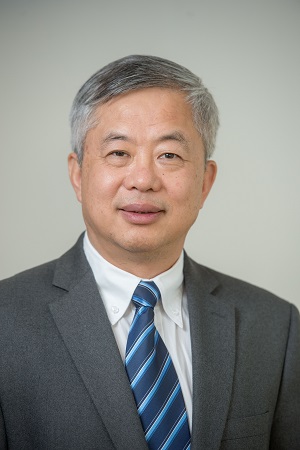| Chang Wen Chen |
|
Title: Contemporary Visual Computing for 6G Semantic Communications Speaker: Chang Wen Chen, The Hong Kong Polytechnic University Abstract This
talk shall focus on contemporary visual computing research trends with
critical implications for 6G semantic communications. Semantic
communication was initially proposed by Weaver and Shannon 70+ years ago
in the early 1950s in which they outlined the classical definition of
three levels of communications: the technical problem, the semantic
problem, and the effectiveness problem. Until 5G, most researchers and
practitioners have been working on the first technical problem. For 6G,
semantic communication becomes necessary to handle the overwhelming
volume of visual data among all IP traffic. We firmly believe that a
paradigm-shifting framework needs to be designed to transport the
volumetric visual data under the 6G mobile communication architecture.
We show that recent technical advances in contemporary visual computing
bear great potential for 6G semantic communication. Among the volumetric
visual data, a significant portion of them has been acquired for
machine intelligence purposes. Therefore, structured extraction and
representation of the semantics from these visual data are desired to
facilitate the 6G semantic communication. For contemporary visual
computing, the well-structured scene graph generation (SGG) approaches
have been demonstrated capable of representing compactly the logical
relationship among the subjects and objects detected from the visual
data. We shall show that the unique capability of structured SGG can be
applied to 6G semantic communication towards future advances in
integrating visual computing with 6G. Biography Chang Wen Chen is currently Chair
Professor of Visual Computing at The Hong Kong Polytechnic University.
Before his current position, he served as Dean of the School of Science
and Engineering at The Chinese University of Hong Kong, Shenzhen from
2017 to 2020, and concurrently as Deputy Director at Peng Cheng
Laboratory from 2018 to 2021. Previously, he has been an Empire
Innovation Professor at the State University of New York at Buffalo
(SUNY) from 2008 to 2021 and the Allan Henry Endowed Chair Professor at
the Florida Institute of Technology from 2003 to 2007. He received his
BS degree from the University of Science and Technology of China in
1983, his MS degree from the University of Southern California in 1986,
and his PhD degree from the University of Illinois at Urbana Champaign
(UIUC) in 1992. He has served as an Editor-in-Chief for IEEE Trans. Multimedia (2014-2016) and IEEE Trans. Circuits and Systems for Video Technology (2006-2009). He has received many professional achievement awards, including ten (10) Best Paper Awards in premier publication venues, the prestigious Alexander von Humboldt Award in 2010, the SUNY Chancellor’s Award for Excellence in Scholarship and Creative Activities in 2016, and UIUC ECE Distinguished Alumni Award in 2019. He is an IEEE Fellow (2005), a SPIE Fellow (2007), and a Member of the Academia Europaea (2021). |

